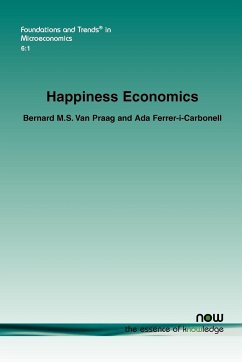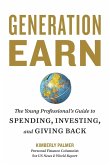Happiness Economics deals with the concept of happiness in economics. Most economists until recently were very suspicious about happiness economics and the common opinion was that happiness is not empirically measurable. Actually there is now a growing body of serious economists who are willing, either reluctantly or wholeheartedly, to include happiness economics as a part of economic science. For a better understanding of happiness economics, the authors examine the viewpoint of mainstream economics in the introduction. Section 2 starts by considering the methods of analysis in happiness economics. Section 3 considers life satisfaction (or happiness), Section 4 considers domain satisfactions, Section 5 returns to the ordinality-cardinality question, and Section 6 provides the link between domain satisfactions and satisfaction with life as a whole. Section 7 considers the work of the Leyden school that may be seen as a forerunner of modern happiness economics. Section 8 considers the effect of the individual's reference group on her or his happiness. Section 9 examines the influence of past events and the anticipated future on present life satisfaction. Section 10 deals with the effect of climate and more generally of the external environment on satisfaction. Section 11 considers the effect of inequality on individual happiness and considers happiness inequality per se. Section 12 considers how the vignette approach, so popular in marketing, can be applied in happiness economics. Section 13 delineates the significance of happiness economics for normative economics. And Section 14 draws some conclusions and discusses the relevance of the new findings for economic science and the social sciences in general.
Hinweis: Dieser Artikel kann nur an eine deutsche Lieferadresse ausgeliefert werden.
Hinweis: Dieser Artikel kann nur an eine deutsche Lieferadresse ausgeliefert werden.








